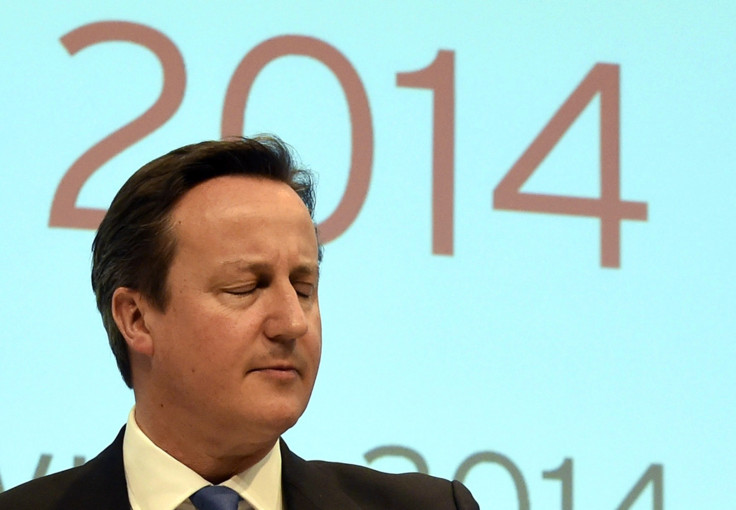David Cameron's Immigration Promise Shattered as Theresa May Blames EU Countries' 'Disruption'

David Cameron's promise to cut net migration to the UK to less than 100,000 by May 2015 has been all but broken.
The Office for National Statistics (ONS) revealed that it rocketed to 260,000 in the year to June, up from 182,000. That's a 42% hike and almost three times the prime minister's target.
At the weekend, Home Secretary Theresa May conceded that immigration from European Union (EU) countries to the UK had "disrupted" the government's efforts to reduce net migration and said it was "unlikely" the target would be reached by the end of this parliament.
We can now upgrade that "unlikely" to "ceased to be", "bereft of life, it rests in peace".
But what does the death of the immigration pledge mean for the Conservatives?
The missed target will certainly strengthen Ukip, who have shifted their rhetoric from libertarian Euroscepticism to a hardline on mass immigration. But the Labour Party, the main opposition, have not been able to capitalise on Cameron's failure.
It was Tony Blair, after all, who championed immigration from the EU. Ed Miliband, a key adviser turned MP during the heights of the New Labour project, has since attempted to distance himself from his party's previous policies.
"It was a mistake not to impose transitional controls on accession from Eastern European countries. We severely underestimated the number of people who would come here. We were dazzled by globalisation and too sanguine about its price," he said in 2012.
Labour, realising they could lose some of their core working-class vote, have vowed to stop child benefit being sent abroad, restrict out-of-work benefits for EU migrants for two years, and ensure there are "fair rules" in place for in-work benefits for those coming from outside the UK.
The policies make more political than economic sense. A study from University College London found that EU immigrants added £4.96bn (€6.2bn, $7.8bn) more into the UK economy in the years to 2011 than they took out in public services, such as from the NHS, education or welfare.
In contrast, a poll from YouGov for The Times and The Sunday Times earlier in the year found the electorate believe immigration has been bad for the British economy.
More than half (57%) of respondents said they thought it was bad and only 31% of people said it was good.
It seems the centre has shifted. It has moved toward a more anti-immigration sentiment and Miliband has followed it. The problem for the Labour leader is his policies are now almost identical to the Tories.
The Conservatives, for instance, launched a crackdown on "benefit tourism" and were boosted after a landmark ruling from the European Court of Justice (ECJ) that means EU member states can refuse to give welfare payments to citizens who "solely" move to another member state to receive benefits. Sound familiar?
The end result is that for all Cameron's troubles over immigration and spats with Brussels, Labour are a point behind the Conservatives according to the latest YouGov poll for The Sun. This means, with the 2015 General Election looming, a second term for Cameron as prime minister is a reality.
© Copyright IBTimes 2025. All rights reserved.






















